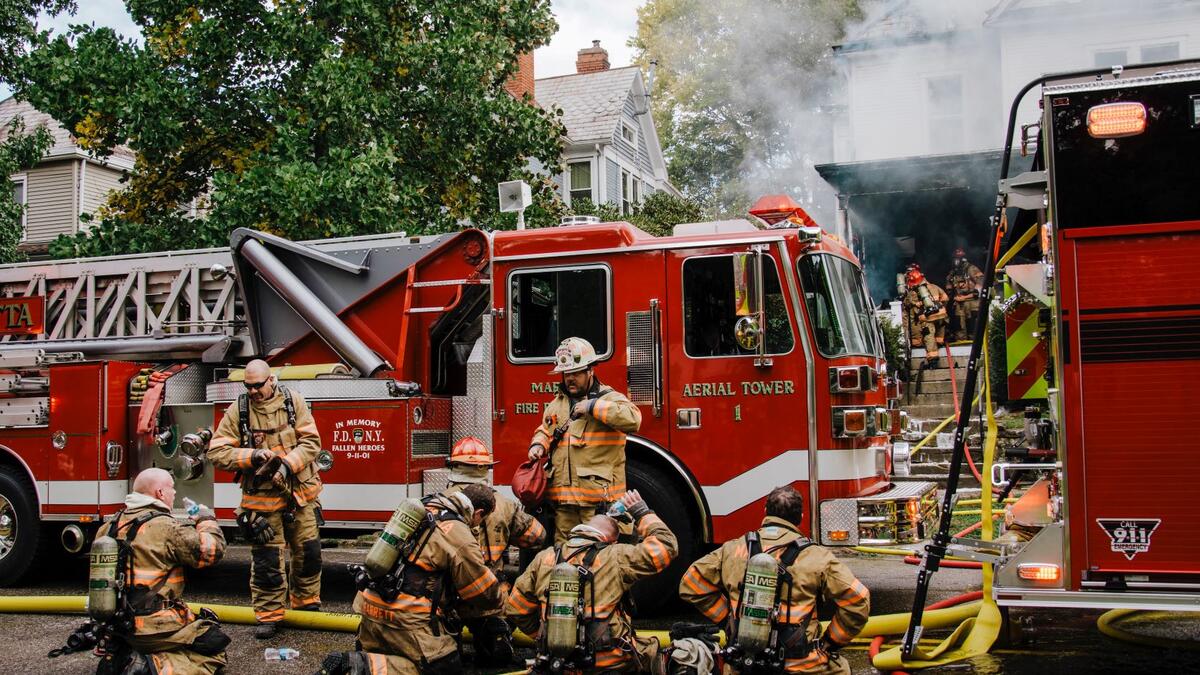ASU institute to cross-train first responders, behavioral health professionals

Stock photo by Courtney Wentz, Unsplash
Television dramas often portray police officers, firefighters and paramedics as confident, time-tested professionals who always know exactly what to do at the scene of an emergency.
The results are almost always amazing and show great relief: a child is rescued from a burning building, near death is averted by CPR, a barricade situation is derailed without injury to hostages or an abuser is arrested and hauled away in handcuffs. Grateful victims fight back tears as they thank their heroes in uniform before the screen fades to a commercial.
The choices real first responders must make, however, are from among a widening range of possibilities, and not every possibility is in everyone’s wheelhouse of experience, said Denise Beagley, a faculty associate instructor in Arizona State University's School of Social Work.
“We believe in cross-training,” she said of herself and her colleagues, who will be holding a two-day cross-training session next month for first responders and behavioral health professionals. “We are trying to add more tools to their tool belts. We want to build off the knowledge they already have and expand their lens. It is not just how to help the public, but to take an internal look and help themselves. This learning occurs when you provide opportunities like this conference.”
Beagley is also a crisis intervention specialist with a local fire department and associate director for crisis and justice systems for a Valley health care system. She will be among several presenters at the School of Social Work’s fourth annual Winter Institute, whose focus this year is first responder and behavioral cross-training.
Participants will learn several techniques to help people — and themselves — at the Feb. 23–24 hybrid event, offered in person at SkySong, the ASU Scottsdale Innovation Center and virtually.
The conference’s topics include trauma-informed response, and crisis management and de-escalation skills, which can aid first responders in making the correct assessment of a behavioral health emergency.
The event will also cover compassion fatigue and self-care, recognizing trauma-induced behavioral symptoms and suicide prevention.
Registration is open to firefighters, police officers, correctional personnel, dispatchers, emergency medical services personnel and other first responders, as well as to behavioral health professionals, including social workers, counselors and researchers.
Registration is now open online, and there is a fee to attend. In-person attendance will be limited to 100 to comply with COVID-19 safety protocols.
Many people may not know that a first responder is more likely to die at their own hands than in the line of duty, Beagley said.
“The more you understand about yourself, the less likely you’ll turn to drugs, alcohol and suicide,” she said.
First responders and behavioral health professionals are invited to attend together because those in each field need to improve their knowledge of how the others are trained, Beagley said.
“By taking first responders and behavioral health professionals together, you ask, how do you cross-train them, how does what they do intersect and how can they learn from each other?” she said.
Kevin Bushaw, the School of Social Work's conferences and events manager, said many first responders believe they aren’t being heard.
“One of the benefits of this conference is giving them more of a voice and trying to fight the stigma (of self-reliance without reaching out for help) by taking care of themselves and recognizing when they need help,” he said. “The behavioral health folks can say, 'Here are some tools to help you manage that.'”
Behavioral health professionals also need to learn from first responders’ experiences, Bushaw said.
Beagley said she hopes that by training people from both fields at the same event, participants will improve how they communicate with each other and with the people they serve.
“We hear a lot about a lack of communication between the health care system and the first responder system, that there is a lack of understanding of each other’s roles,” she said. “Pairing them up can only make them stronger.”
More Arts, humanities and education

ASU instructor’s debut novel becomes a bestseller on Amazon
Desiree Prieto Groft’s newly released novel "Girl, Unemployed" focuses on women and work — a subject close to Groft’s heart.“I…

‘It all started at ASU’: Football player, theater alum makes the big screen
For filmmaker Ben Fritz, everything is about connection, relationships and overcoming expectations. “It’s about seeing…

Lost languages mean lost cultures
By Alyssa Arns and Kristen LaRue-SandlerWhat if your language disappeared?Over the span of human existence, civilizations have…

